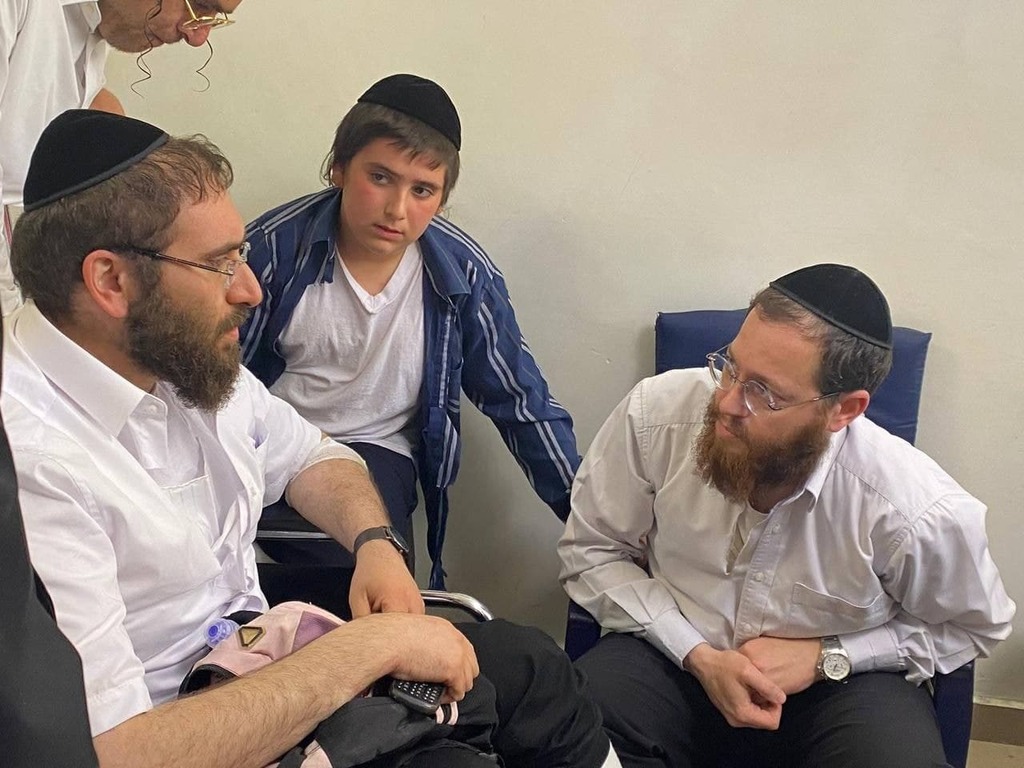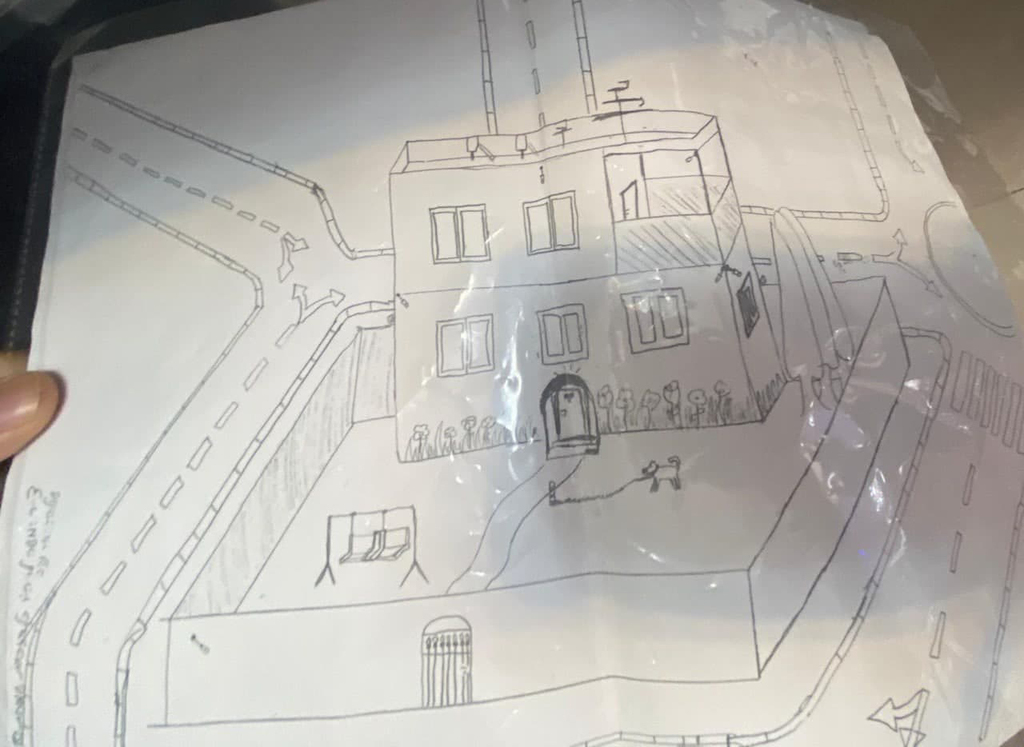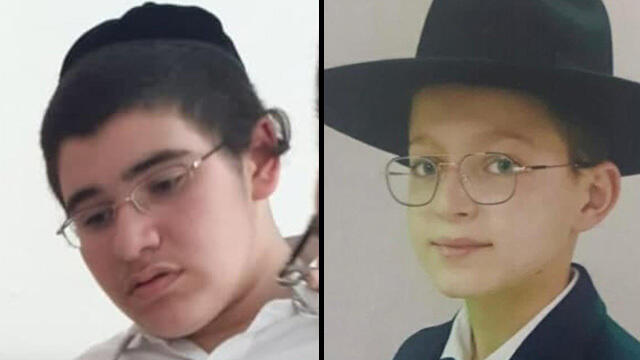Rabbi Avigdor Hayut lost both his 13-year-old son Yedidiyah and his student Moshe Levi in the tragic Mount Meron stampede that took the lives of 45 people and injured some 150 others last Thursday.
The three were among tens of thousands of ultra-Orthodox Jews who flocked to the gravesite of 2nd-century Mishnaic sage Rabbi Shimon Bar Yochai for the start of the Lag BaOmer holiday.
3 View gallery


Rabbi Avigdor Hayut and Rabbi David Levi meet for the first time after the tragic events at Mount Meron which took the lives of their sons Yedidiyah and Moshe
On Sunday morning, Hayut met with Moshe's father, Rabbi David Levi, and recounted the sequence of events from the tragedy.
"We held hands the entire time until we fell and got slammed onto the ground. My younger son stayed by my side, but Moshe and Yedidiyah got separated from us. The pressure was immense, I couldn't move an inch. That's where I understood that I lost them," Hayut told Levi in tears. "I did everything I could."
Levi presented to Hayut a drawing of a map of Rabbi Bar Yochai's grave complex that Moshe drew a week beforehand. Hayut broke into tears and said: "I loved him as if he were my own son."
Levi recounted how excited his son Moshe was to attend the festivities with the Avigdor and Yedidiyah.
"There wasn't a single day that your name did not come up in the house. 'Rabbi Hayut told me this' and 'the rabbi told me that'. Thank you, we love you," Levi said to Hayut.
3 View gallery


A drawing of the Rabbi Shimon Bar Yochai grave complex on Mount Meron which Moshe Levi drew a week before his death
(Photo: Courtesy of the family)
Earlier on Sunday, Hayut also shared the story of how he almost missed Yedidiyah's funeral as he was still hospitalized with injuries he sustained in the stampede, but eventually managed to escort his eldest son on his final journey.
"I insisted that his funeral be held on Friday," Hayut said. "Shortly before 5pm, we received the news his body was identified; my two brothers were at Abu Kabir [the Institute of Forensic Medicine in Tel Aviv]. My relatives who were with me [at the hospital] did not want to tell me the news, but I could tell from their looks. I called my brother and told him to leave everything, the kid had to be buried before the Sabbath.
"I implored Abu Kabir through the media to release the body. When the funeral procession arrived at the cemetery, we discovered in the last minute before burial that they had switched the bodies. It wasn't my son. Everybody went back, and I understood that Yedidiyah wouldn't let me off the hook. He wanted me there. He waited for me.
"My eldest son, my prince, my sweet boy. A righteous kid, as far as you can call a child that. A child that at the age of 13 was not interested in going to the beach or the swimming pool, no pleasures, no nothing. In his spare time, he would sit and study. He was my teacher, I feel empty without him."
Hayut then expressed hope the tragic events that took his son and student away from him would bring the people of Israel closer.
"I am a man of belief. I know that this was the Lord's will. We don't know what the heavens decide, but I do know one thing — we're in the midst of a period of great division, and it should not be so. We are Jews first and foremost and we should simply respect one another, with or without a yarmulke. I saw it on Saturday at Ziv [Medical Center in Safed where he was hospitalized]. Nurses and doctors of all stripes — Arabs, Jews, religious, secular; Hasidim who were there and took care of food for everyone. All work in wonderful harmony. And I say — oh Lord, why is it like this only in the hospital? Why can't it be this way on the street? Why are we attacking each other, why are we at each other's throats?"


